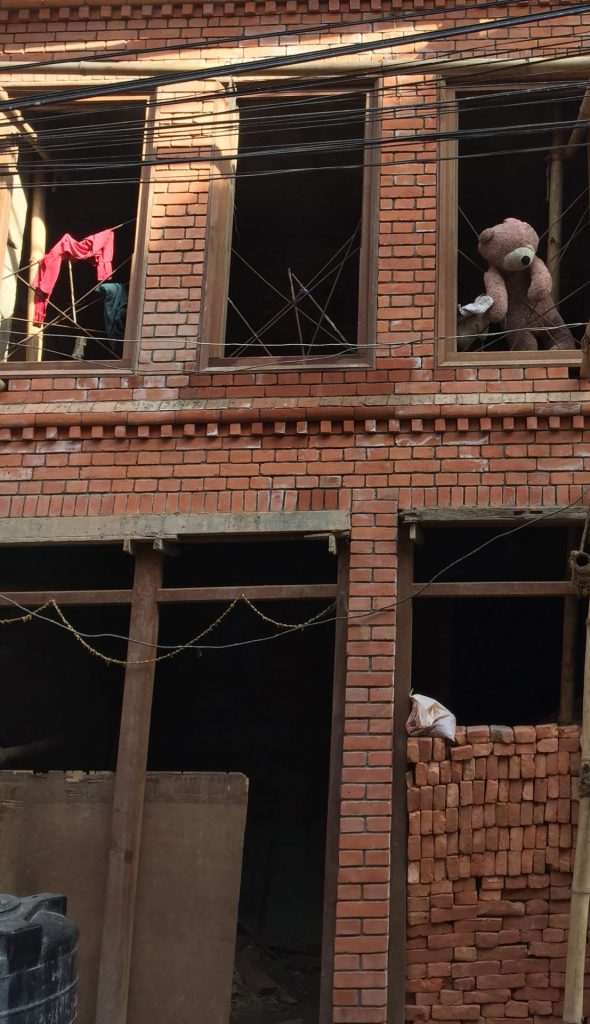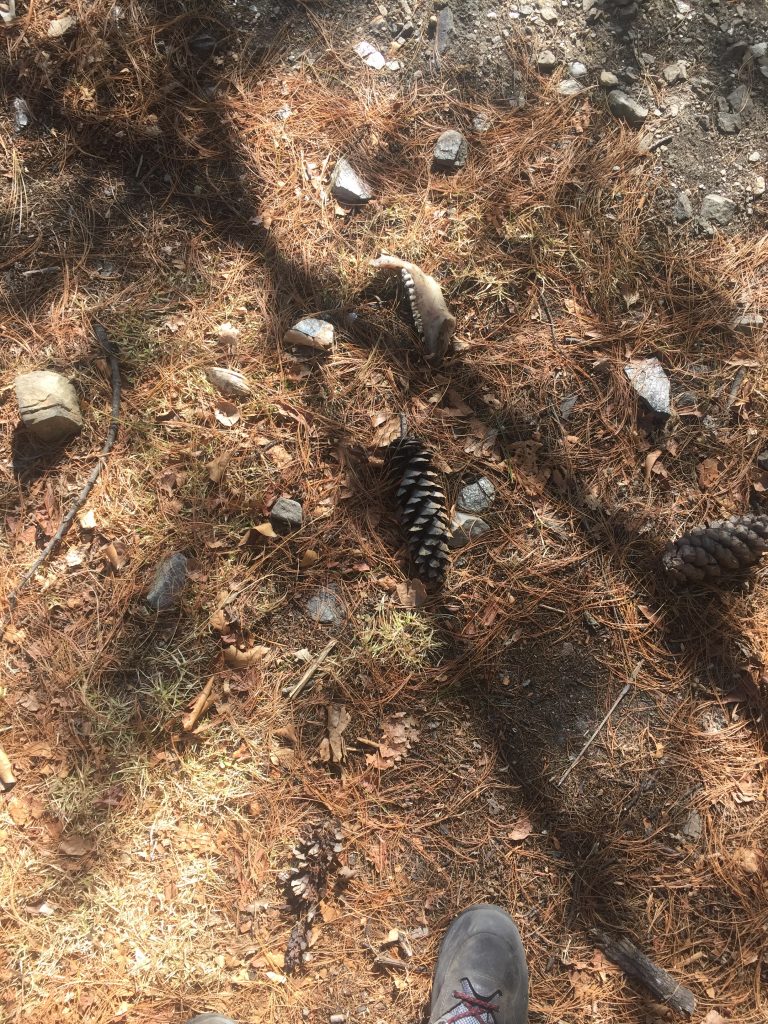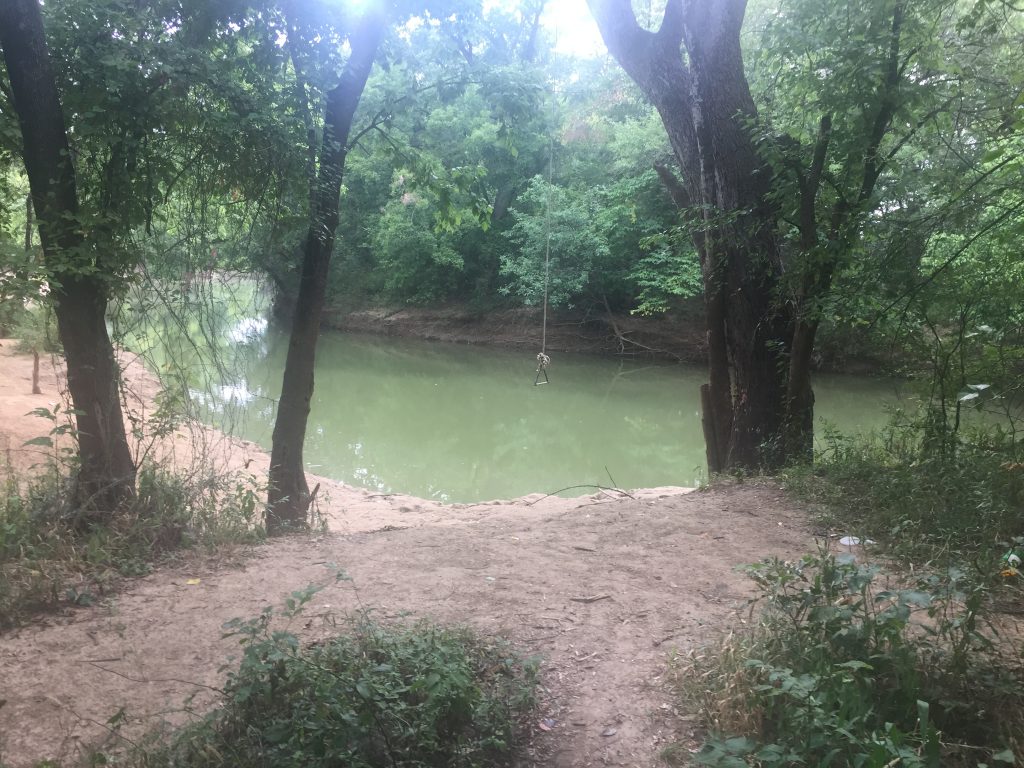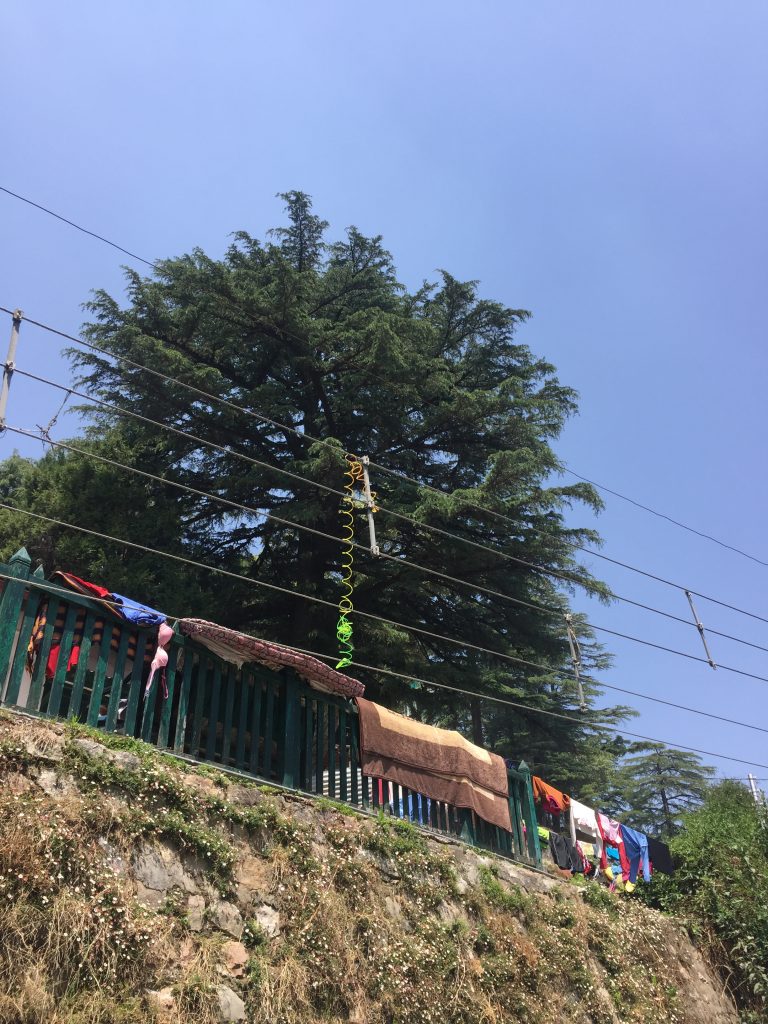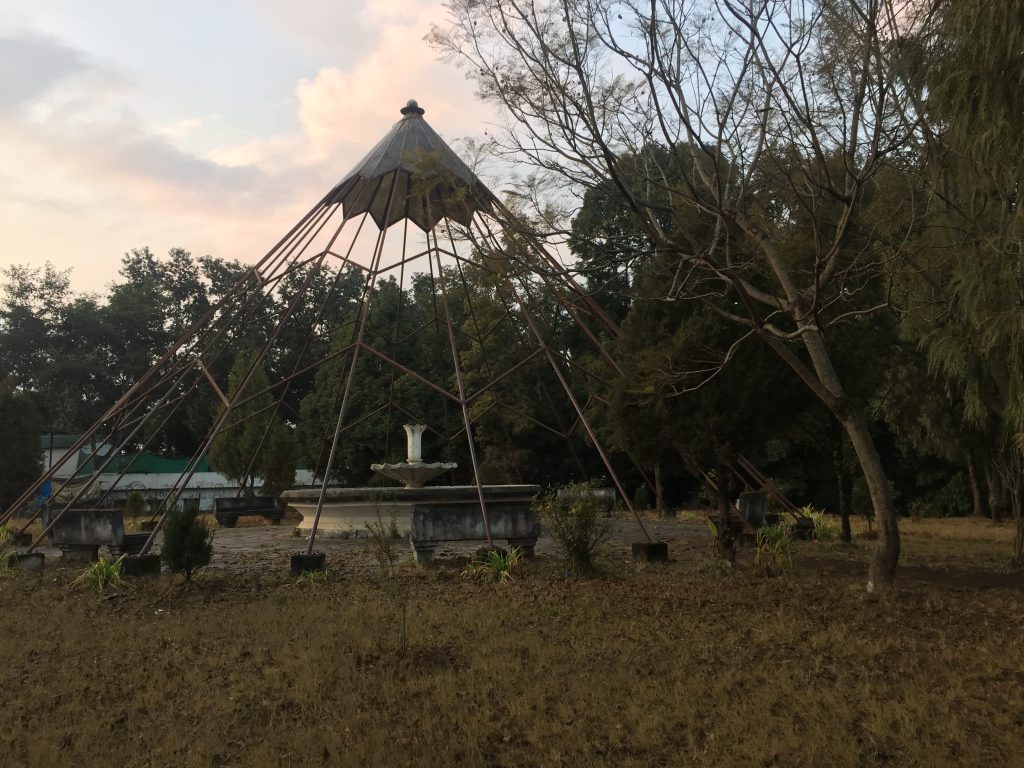
‘A troubling things occurs when men find themselves reflected in the symbol of the ambiguous walking man that shines white at American crosswalks to signal the way forward. They seek anonymity. They shave their heads. They become enchanted with dichotomy, sure that life is a crossroads at every turn. They become strange.
Thusly changed, the strangers understand liberty only when faced with barriers. They unbind without knowing whether chains hold inmate or anchor. They topple walls without consideration for structure or cold. They understand the forest as both freedom and hindrance, so that the paths they carve there wind deeply and without purpose.
They see the revelation at the crosswalk as a new manifest destiny and they evangelize, in a way, sure that the uninitiated resist crossing only for having forgotten to press the button.’
–excerpt, Unattributed Writings on the Origins of Strangers
I recognize the passing of two state borders before the strangers think to press an empty case of beer over my head, twisting it so that the position of the handle roughly corresponds to my mouth. Night falls and the bed of the pick-up grows dreadfully cold. I squirm forward until my body is pressed up against the back of the cab. Inside, the voices of the strangers are loud, jovial. They laugh often. I can’t make out any words.
I sleep for an indeterminate amount of time. Light creeps in through the crude mask. The mouth gap has softened under the constant barrage of my breathing. I chew at it, thinking I might tear a strip upward. In the end, I only manage to make the orifice jagged.
It’s warm again when the truck finally stops. The strangers announce themselves with their fingers, prodding me here and there until the knots loosen. I hear the tailgate screech open- am dragged into a sitting position, pulled to standing. The ground beneath me is gravel. It’s hot, now. I would happily trade my life’s temperature extremes for an unending 65 degrees. Someone speaks ahead of me, asking a question they should have considered earlier:
“You’re the guy from a while back, right?”
I spit a wad of cardboard and the sound of its impact is close and satisfying. The improvised hood is torn away and the world becomes painfully bright. My eyes adjust in time to see the stranger prepare a world-ending sucker punch.
The world ends for a second or two. Its return is nauseating.
We’re in the parking lot of a stadium.
I’m dragged inside.
The stadium is open air but it reeks of exhaust. Strangers populate the bleachers, maybe a hundred total are scattered about in sparse groups. A few throw popcorn at me as we pass but my entrance is otherwise unremarkable. At the crest of the stairs I make out the entertainment- a sort of demolition derby is in motion below, all of it confined to a shallow pit in the shape of a man. I shudder as the pit seems to shift, its walls colliding with a van. The vehicle lifts and spins, finally rolling to a stop on its side. A stranger crawls from the wreckage, limping on a broken leg. The pit shifts again and the earth seems to consume him. I trace its shape back to the bleachers and spy a silhouetted form at the top.
The game is played in the shadow of the King of Strangers. He looks in my direction and shatters an old sedan below. The crowd cheers.
I’m led up through the gathered men. A few more people throw food. Most look, now, having traced the attention of the man above them. They release me as we near the King of Strangers, their encouragement rough, silent, and clear: approach. Given no other choice, I do, and I see my shadow join his in the vast circle below.
“You’ve returned my man,” he says.
“There was something wrong with him.”
“Yes.”
The King of Strangers wears a cardboard crown, lifted from some nearby fast food chain. It fits painfully tight, cutting into the skin of his bald head. From a distance I would have said the man wore robes but, in reality, his clothes drape, in tatters, from his body.
“Something for you,” he says, and when he kneels to retrieve a book at his feet there are explosions below. The western wall of the stadium collapses when he hands it to me.
Cheers turn to screams.
“The man was a writer,” he says, “He was working on this when he… succumbed.”
The book he hands me is a copy of Shitholes.
“He was working on a published book?”
“He wrote in the margins.” I flip through the pages and see another book’s worth of text in the blank spaces. The letters are clean and straight, written in pen. The King of Strangers sees my admiration and adds: “The man believed he was above mistakes, which was not exactly true. He thrived in broken places, where small mistakes remained unnoticed. The book is yours now. You may go.”
‘May’ turns out to be an exaggeration. I’m grabbed by the waiting strangers and tossed out into the parking lot where my bag sits atop the bike. I intend to toss the gifted book at the next gas station but see that my captors have topped me up. By the time I stop, I’ve convinced myself to read it.
-traveler
‘‘The Specter at Balesford Bluff’ (formerly ‘The Hermit at Balesford Bluff’) is generally considered a bad omen, not because it’s a particularly willful wraith but because the hermit delighted in misfortune as a mortal and seems to maintain this delight in the afterlife. If anything, the hermit’s demise appears to have granted him a preternatural ability to sense the unfolding of a dire situation with enough time to manifest and leer.
The silver-lining of the situation as a whole lies in ‘The Specter’s’ nearness to ‘The Balesford Witching Well.’ ‘The Bluff’ overlooks the highway as one exits to the north and an appearance of ‘The Specter’ following a deposit at ‘The Well’ has, on occasion, alerted a perceptive traveler to a monkey’s-paw type situation, allowing them to return and re-word their ill-formed wish, much to the disappointment, one might suspect, of the former hermit. That the ‘The Specter’ has not yet reacted to the pattern is cause for much chatter among those who discuss the oft-crystalline rigidity of hauntings. It is, to many, proof that the terrestrially-inclined deceased are unable to break their immortal routines, though several people who knew the hermit in life claim that this particular man exhibited about as much self-awareness then as he does now.’
I wake in the back of a pick-up truck, the world roaring past on either side of me. The strangers have wrapped in me in rope so tightly that I can feel my pulse throbbing against the cord, as though my entire body has been squeezed into the blood-pressure machine at the back of the grocery store. The motorcycle hovers over me, chained carelessly to the side. The handlebars would land squarely on my face in the event of it slipping when we, say, hit even the mildest of bumps. Someone taps on the glass from the cabin and I strain to look backward. One of the Strangers nods to me. He lifts my bag as if to say ‘Don’t worry, we didn’t forget this.’
I can’t see anything over the walls of the cargo bed, though a cliffside lingers distantly behind us. There, at the top, I think I see the silhouette of a man.
He waves.
-traveler
‘One will rarely find themselves alone at ‘The Balesford Witching Well’ and the company helps the impoverished traveler to remember their morals as they spy the rather large pile of money that spills from the mouth of the congested stones. These represent wishes, after all. Shoving aside some of the coins (no doubt stoking the ire of the crowd) one can find the reason for all this trouble. Unlike most wishing wells, which are regularly dredged for charity or upkeep, a plaque at the base of ‘The Balesford’ declares that wishes made in good faith there will come true, but only so long as the money remains.
A vagabond may grab a handful of the well’s change and quash the luck of a few dozen people scattered across the globe. A crow could steal a shining dime and sow discontent into the marriage of soulmates. A careless wisher might toss a coin to the top of the pile, only to have it roll into the bushes during a storm. Those who live about ‘The Balesford Witching Well’ will say they’ve seen all of this occur.
The people camping near the well are there to protect it, or, to protect their wishes. They watch visitors with clear disdain, their eyes storm clouds- gray and volatile. They will gasp when you approach and shriek if you so much as reposition a penny that looks as though it might slide from the pile. They are happy to recite the rules of the place, but only after you have broken them.’
Strangers have surrounded ‘The Balesford Wishing Well’ when I arrive. I recognize them in time to hang back in the forest and watch from behind a tree. The group, all buzz-cuts and jeans, are heaving fistfuls of coins into the bushes and sky while a group of dirty looking people, presumably the well’s keepers, scream.
“You’re free now!” one of the strangers shouts, “Your wish might be in here, your wish might be out there! No point in sticking around!”
The keepers don’t appear particularly calmed by the stranger’s take on the well. Some are collecting the coins and trying to throw them back to the well, presumably for the benefit of those not there. Others seem to be trying to remake their own wishes on the discarded coins. None are willing to confront the strangers.
I don’t blame them. One of the men has a long hunting knife at his side. Another carries an axe. The last holds a half bottle of cheap whiskey.
Change clatters against my tree and I thin myself until the strangers have circled around again, their backs to me. One of the keepers crawls over to dig through the grass for coins. He must see me standing there but says nothing. There wouldn’t be much benefit to calling attention to either of us. The strangers continue to shout from behind.
When the keeper scurries back to the well I straighten to leave and spy a nickel under my shoe. The strangers are still facing away when I retrieve it and, in the chaos, I lob it back toward ‘The Balesford Witching Well,’ silently wishing for a swift end to this nonsense. It clears the rim and becomes lost among the coins there.
A voice behind me calls to the strangers, then. It says:
“Hey! Isn’t this that guy!”
They stop what they’re doing and, before I can run, I feel something strike my head.
The world goes dark.
-traveler
With a name like ‘The Williamsburg Ruins,’ one expects a certain level of detriment so, imagine my surprise, when I arrive at the foot of a towering stone cabin, instead. I heave my pack to the ground and wait for the map to update on my phone. Just one bar out here- the real outdoors. A bird cries overhead and something moves about in a bush. My pack leans toward the cabin, slowly tips over, slowly expels my water bottle from the side pocket.
It’s been a longer day, but a nice one. Cold when I started walking but just right for a hike. The trouble is that ‘The Williamsburg Ruins’ are normally only a mile or so from the road but last year’s ice melt wiped out a bridge that nobody is in a hurry to replace and now the walk is nearer to five miles. That’s five miles if, like me, you attempt to do it in a straight line. Walking the road is closer to ten.
But it worked out, for once. The way was easy and, even though I probably packed too much for what amounted to a day hike, I feel healthy. A little shoulder strain. A decent amount of sweat. I…
Why the fuck was my bag so heavy?
‘Read this again.
There’s a reasonable chance something strange has happened just now. Are you looking at the ruins of an old stone cabin? If yes: no need to panic. There is a map of this area in the appendices. Pick up a brick and take it with you when you go. Are you looking at a relatively intact stone cabin? If yes: no need to panic immediately. Have you, consciously or unconsciously carried bricks along with you? If yes: allow a minor amount of panic to fuel the next few actions you take. You are in danger. Take the bricks and leave. ‘The Williamsburg Ruins’ should not be allowed to reform.’
-traveler
A very particular type of candy arrived on the shelves of the local convenience store in the late nineties- a thick, sour sludge that could be purchased in mock test tubes and featured a gummy worm at the center. I was young, then, and the candy’s debut coincided with the release of a video game in which the protagonist chugs vials of green liquid to replenish his health. Though it’s hard to believe now, in an era of snack/game collaborations, I don’t believe the coincidence was planned. I think it was sheer luck that the two companies inspired the manic consumption of their products in a single mid-western child- a pleasant blip of demand that neither would ever fully understand.
The game has faded into obscurity but the candy has disappeared entirely. There are no pictures on the internet, no archived advertisements or retro-reviews. Nobody I speak to remembers it or, if they do, they remember it only vaguely and only in conjunction with myself as though the candy only existed in relation to me and my life. The candy was, seemingly, a failure. I have no doubt that my memory of the substance must be wildly out of sync with reality, colored as it is by time.
But I crave it.
I don’t think of it often, but when I do, there’s nothing I want more.
‘The universe resists perpetuality of any sort, skimming just enough energy off the top to maintain entropy. A wire will heat up and glow. A shaft will wear against the pump. A carefully-organized series of molecules will burst into atoms and re-form into something useless. Or dangerous.
In the process of stealing our energy, though, the universe is happy to leave us with the ‘detritus,’ be it the ashes of a fire, the congealed lubricant of the machine, or, in regards to the great American cycle of consumption, the items that sift through the filter of second-hand retail and into ‘The Nostalgia Vault.’ There, you will find what deserves forgetting.’
If the contents of a landfill were to be transported into a discontinued stretch of sewer and maintained such that a walkable path existed there, it would look exactly like ‘The Nostalgia Vault.’ Its entrance can be found in Southern California but the ‘Vault’ feels very much like a realm of its own. Having paid a small entry fee I was more or less given free reign to explore, the only rule being that items cannot be removed from what is optimistically called ‘the collection.’ Rearranging is fair play so, not unlike the French catacombs, several rooms in ‘The Nostalgia Vault’ now house morbid displays.
Several yards back, for instance, was a claustrophobic space filled entirely with common pieces of popular collectible card games- your basic lands, energies, and failed sports stars. Someone has created an intricate tiling pattern there and, even more impressive, glued thick stacks of the cards into two chairs and a table. Atop the table is a checker board, populated by pogs. Another room consists entirely of off-brand beanie babies, organized by color and staring straight ahead, their beady eyes reflecting rodent-like in the beam of my flashlight.
There are miles of garbage for every carefully curated room, however, and I find my patience with the experience shorter than I initially expected as someone who traditionally enjoys poking about pawn shops and thrift stores. ‘The Nostalgia Vault’ is honest in advertising itself as a collection of the millennium’s c-list items and even if I were to stumble upon a one-man’s-trash situation, nothing here is for sale. There is no point and, as if often the case, I wonder if that’s ‘The Nostalgia Vault’s’ intention after all.
Imagine, then, the sickening delight I feel upon entering a room full of old, garbage candy and spying, in the corner, a vial of green cornstarch. I hesitate before opening it, both because I see that the gummy worm is well on its way to dissolving inside and because I will be violating the sanctity of the place, lessening it for the next visitor who may fondly remember the same disgusting candy. The hesitation passes quickly, though.
This isn’t a museum.
This isn’t a goddamn national park.
I crack the seal on the vial and hold it to my mouth, savoring the smell in the time it takes for the thick candy to reach me.
When it does, I feel better than I have for a long, long time.
-traveler
Rear View Mirror
- December 2025
- November 2025
- October 2025
- September 2025
- August 2025
- July 2025
- June 2025
- May 2025
- April 2025
- March 2025
- February 2025
- January 2025
- December 2024
- November 2024
- October 2024
- September 2024
- August 2024
- July 2024
- June 2024
- May 2024
- April 2024
- March 2024
- February 2024
- January 2024
- December 2023
- November 2023
- October 2023
- September 2023
- August 2023
- July 2023
- June 2023
- May 2023
- April 2023
- March 2023
- February 2023
- January 2023
- December 2022
- November 2022
- October 2022
- September 2022
- August 2022
- July 2022
- June 2022
- May 2022
- April 2022
- March 2022
- February 2022
- January 2022
- December 2021
- November 2021
- October 2021
- September 2021
- August 2021
- July 2021
- June 2021
- May 2021
- April 2021
- March 2021
- February 2021
- January 2021
- December 2020
- November 2020
- October 2020
- September 2020
- August 2020
- July 2020
- June 2020
- May 2020
- April 2020
- March 2020
- February 2020
- January 2020
- December 2019
- November 2019
- October 2019
- September 2019
- August 2019
- July 2019
- June 2019
- May 2019
- April 2019
- March 2019
- February 2019
- January 2019
- December 2018
- November 2018
- October 2018
- September 2018
- August 2018
- July 2018
- June 2018
- May 2018
- April 2018
- March 2018
- February 2018
- January 2018
- December 2017
- November 2017
- October 2017
- September 2017
- August 2017
- July 2017
- June 2017
- May 2017
- April 2017
- March 2017
- February 2017
- January 2017
- December 2016
- November 2016
- October 2016
- September 2016
- August 2016

